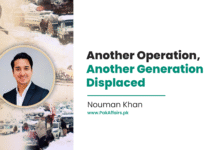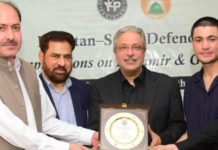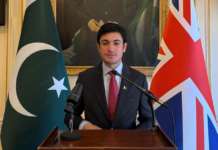 The year 2020 has brought major changes in the international system and has seen the emergence of a new world order due to the pandemic. It is said that a new world order will bring major realignment within the leading powers of the world. Also, the Muslim world would have to adjust to these new changes and realign itself to suitable world powers. Arab and non-Arab states have to decide how to safeguard their turf in the emerging new world order.
The year 2020 has brought major changes in the international system and has seen the emergence of a new world order due to the pandemic. It is said that a new world order will bring major realignment within the leading powers of the world. Also, the Muslim world would have to adjust to these new changes and realign itself to suitable world powers. Arab and non-Arab states have to decide how to safeguard their turf in the emerging new world order.
Emerging; a new world order
The post-pandemic world will not be the same as before, and the world economy will need time to recover. China is on the way towards recovery, and with its strong economy, it will continue its march for global dominance. The US will lose more of its superpower status to China; the pandemic is affecting the employment, the economy, and the health system. It already works closely with the EU but has disputes with Russia. Also, it has chosen a more independent or confrontational approach in the international system. It has a trade war with China. The US was already losing its economic and international leadership when the pandemic struck, made worse by it.
The two blocs that have significant influence over all countries, including the Muslim World, are the US and China. Both powers have played with the fault lines between the Muslim World and have attained allies that stand loyal to them. Arab and non-Arab countries in the Muslim world have surfaced with clear agendas and the US and China are making sure that they are fulfilling their promises.
Arab Bloc; struggling to hold on to Muslim leadership
The Arab Bloc consists mostly of the Gulf States, headed by Saudi Arabia. Muhammad Bin Salman, supported by the US, has got hold of power and aims to transform Saudi Arabia from a conservative state to a moderate and more modern one. The Saudi Arabian economy faces challenges because of its over-dependence on oil. Moreover, the tension between Iran and Saudi Arabia has forced the Saudis to depend yet more on the US for arms and military support. Muslim leadership is the vital element of forming a Saudi led bloc which could help it in maintaining the status quo and keep its strategic importance of The Gulf.
UAE; supporting actor with a separate agenda
The UAE has been a strong supporter of Saudi Arabia and the US in the region. Recent normalization steps of relations with Israel have made an uproar in the Muslim World. The UAE seems to fear rising tension with Iran, and when joining hands with Israel, it will help it to secure an ally that has a common rival in the region. The attack on Aramco Refineries last year triggered this new partnership. Arms sale and intelligence sharing will soon follow between the UAE and Israel.
Egypt and Jordon
Long time partners and loyal members of the Arab Bloc, Egypt, and Jordan, have already normalized their relations with Israel. They have active support from the US and Saudi Arabia in terms of economy and defence. Threats of non-state actors loom over them as well, but it seems it is a risk they are willing to take.
The Non-Arab Bloc; rising resentment against the US and Saudi Arabia
Turkey, Malaysia, Iran, and Qatar are pushing for new leadership in the Muslim World. They see Saudi Arabia as a puppet regime to US interest at the cost of collective gains of the Muslim Ummah.
Turkey; Erdogan uniting Non Arab states to form a Muslim bloc Led by Turkey, the formation of a new bloc is on the cards. Fed up with the Western involvement in the Muslim World, Turkey is trying to forge a stronger and more effective Muslim World that can deliver on its promises. Turkey is involved in Syria and has made good ties with Russia, which is not acceptable to the US. Turkey is also challenging the Saudi policies in the Middle East and it has supported Qatar in times of crisis. Turkey seems to be the number one contender for Muslim leadership and has attained support from various corners. Turkey is active in Syria and Libya to protect its interests in the Middle East. Qatar and Turkey have come close after the Arab blockade, making easier access for Erdogan into Gulf politics. Meanwhile, three vital non Arab states, such as Pakistan, Iran, and Malaysia, enjoy healthy relations with Turkey and seem to agree on the main aspects of the agenda regarding the Muslim World.
Iran; the main reason for Arab states to join hands with the US
Iran has constantly put pressure on the Arab states for multiple reasons. Iran’s nuclear program was a threat to the Arab World and the age-old Sunni-Shia conflict has divided the Muslim world for a long time. Iran under US sanctions has resorted to carrying out missile tests and actively engaging itself in Iraq, Syria, Yemen, and Palestine through proxies. The recent attack on the Aramco oil refineries in Saudi Arabia has brought the Arab Bloc closer to the Israeli camp. Iran wants a change of leadership away from Saudi hands, and for that reason, it has joined Turkey.
Qatar and Malaysia; emergence to active politics
Both Qatar and Malaysia have sound economies and growth rates which have motivated them to play a leading role in the Muslim World. Qatar has understood the importance of self-reliance under the embargo. It too wants to help Turkey to gain a leadership role after the Saudi led bloc imposed an embargo. Malaysia’s sole purpose is to make the Muslim World stronger and more effective. It sees non Arab Muslim states capable of delivering their long lost glory of Muslims around the world.
Pakistan; state caught between the two blocs
Pakistan, despite going through multiple problems because of its weak economy and terrorism, yet declining, never ceases to lose its importance. Pakistan has the attention of the world’s super and major powers, and also with the Muslim World. Being the sole Muslim nuclear state, Pakistan is given a lot of importance. Pakistan has been with the Saudi Bloc since its inception. The Saudis have supported Pakistan with essential aid and funds. This has even made Saudi-Arabia a player in internal matters of the country.
Recently, the ties with Saudi Bloc have seen a downturn as Saudi-Arabia has done nothing so far for the Kashmiri cause. In reaction, the Saudis have taken back $1 billion from its given aid to the new PTI government. Current relations are presently at their lowest point, and Pakistan might shift its main alliance towards Turkey, Iran, and Malaysian. China has so far played a vital role in helping Pakistan both militarily and economically, and that influence would drive Pakistan’s foreign policy in the near future.
In a nutshell, the Muslim World will still play the role of much of a pawn on the world’s chessboard as it is not united. Internal differences have fragmented the power of a key player that can influence outcomes that can bring peace to the Middle East and South Asia.
Zahid Hussain Jamro
He is a young writer and master student,




